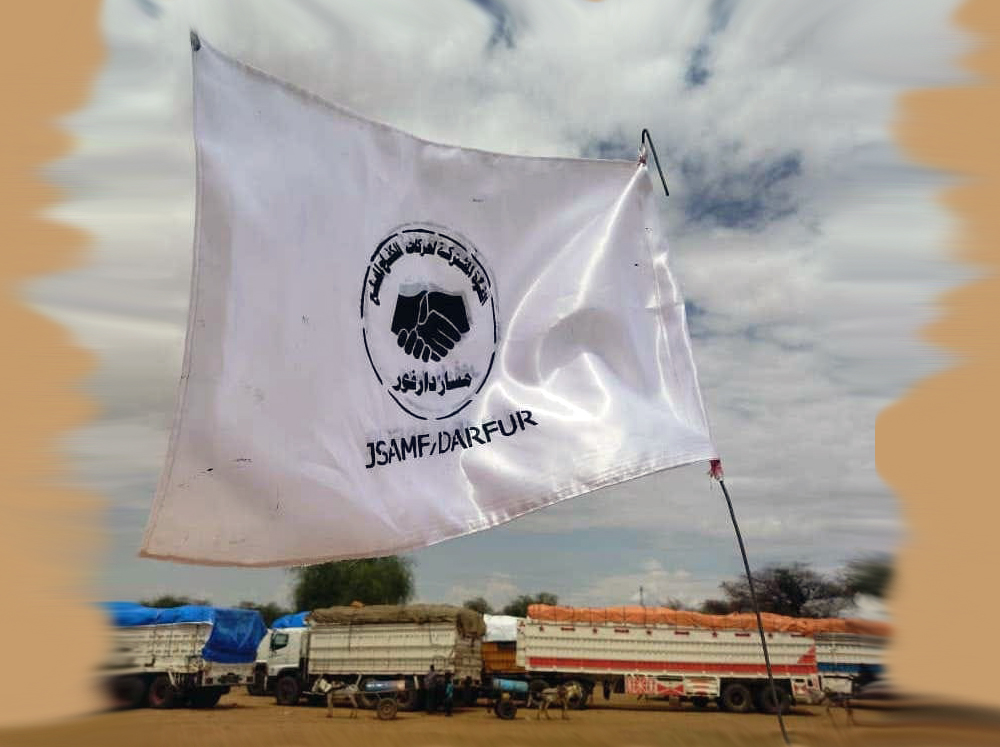
The Armed Movements of Darfur Were Defeated in Silence
By Abdelrahman Al-Ajib
Before the devastating April war, a large number of displaced people and refugees dreamed of leaving the old camps left behind by the Darfur War (2003), which were not much different from prisons. They dreamt of returning to the villages and areas they fled from 20 years ago.
For two decades, the hopes of the displaced people and refugees clashed with a bitter reality. The villages they fled from still lacked the basic necessities of life, such as healthcare, education, and clean drinking water. This was in addition to the new security situation brought about by the April war.
Thousands of displaced people, who were displaced by the war led by the regime of the National Congress Party (NCP) in Darfur in 2003, had plans to return to the areas they fled from. However, the April war blocked their path, and many of them still complain about the fragile security situation in various parts of the troubled region. This has increased the fears of the population due to the rising cases of deliberate kidnappings, killings, and lawlessness.
The reality is that the specter of civil war still threatens the people of Darfur due to the failure to implement the Security Arrangements Protocol outlined in the Juba Agreement (October 2020). In the current fragile situation in Darfur, it is difficult for citizens to return to their homes, especially considering the numerous challenges.
Since the outbreak of the war between the army and the Rapid Support Forces on April 15th last year, all states of Darfur, except for East Darfur State, have witnessed fierce battles that have resulted in the killing and displacement of citizens in cities like El-Fasher, Kutum, Nyala, Kas, Kabkabiya, Zalingei, El-Genina, and other areas.
The Juba Peace Agreement signed between the transitional government and the armed struggle movements in 2020 did not prevent the escalation of violence in Darfur. The armed movements attribute the security breakdown to the failure to implement the Security Arrangements Protocol, which has complicated the situation further.
Going back, we find that the Abuja Agreement signed between the Sudanese government and the Sudan Liberation Movement led by Abdelwahid El-Nur in 2006 failed to address the issues of displaced persons and refugees. Throughout the five years of the agreements existence, the institutions of the transitional authority for Darfur states, led by Minni Arko Minawi, failed to achieve anything substantial for the displaced persons and refugees until the end of the transitional authoritys term, and Minawi returned to rebellion.
Before the Abuja Agreement expired, the Sudanese government entered into a marathon of negotiations that led to the signing of the Doha Agreement for Peace in Darfur between the Sudanese government and the Justice and Equality Movement, led by Dr. Tijani Sese, in 2012. For some observers interested in Darfurs affairs, the Doha Agreement succeeded in delivering some development projects. Still, it fell short of their ambitions, and it also failed to make a significant impact on the file of displaced persons and refugees.
On October 3, 2020, the Juba Peace Agreement was signed between the transitional government and the armed struggle movements, including several protocols, among them the Displaced Persons and Refugees Issues Protocol, in which both parties committed to working diligently to facilitate the voluntary return and resettlement of displaced persons and refugees to their original areas within 60 days of signing the agreement. However, more than two years have passed since the signing of the Juba Peace Agreement, and the Displaced Persons and Refugees Commission has not been established yet, despite international assistance and the involvement of the Office of the United Nations High Commissioner for Refugees and other relevant national and international organizations.
For displaced persons and refugees, it is known that they are among the most affected groups by the conflict in Darfur, and it is natural and their right to receive compensation and redress for the harm inflicted on them and their families. To achieve this goal, the two parties in the Juba Agreement agreed to establish a Compensation and Redress Fund in Darfur within 90 days of signing the agreement to receive and process compensation and redress decisions issued by relevant authorities. However, more than two years have passed since the signing of the Juba Peace Agreement, and the Compensation and Redress Fund has not been established yet.
Since Minni Arko Minawi assumed the position of governor of Darfur on August 10, 2021, the situation on the ground has deteriorated significantly. If we compare the conditions in Darfur before and after his appointment, we find that the situation was much better before his appointment. After his appointment, the security situation deteriorated, and Darfur states witnessed violent conflicts and security breakdowns. Additionally, all states did not see the implementation of development projects, and the situation remained as it was in the past, if not worse.
The devastating April war entered its seventh month, and Minawi and the Juba Agreement group continue to remain silent about the violations of the April war and the killings, displacement, and human rights violations that have affected civilians in Darfur cities. Some believe that this silence confirms that the leaders of the Darfur armed struggle movements who signed the Juba Agreement have become accustomed to failure and have failed the moral and principled tests associated with their political and demand projects for which they rebelled.


